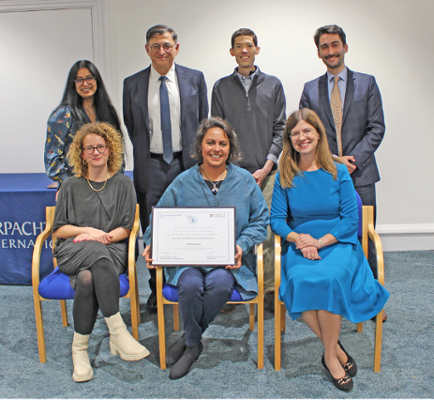The Max Planck Institute for Comparative Public Law and International Law of Heidelberg and the Lauterpacht Centre for International Law at the University of Cambridge are delighted to announce that the second Max Planck-Cambridge Prize for International Law (MaxCamPIL) has been awarded to
Sundhya Pahuja
Professor at the Melbourne University Law School.
Sundhya Pahuja has organized a workshop "Global Corporations and International Law" in collaboration with Anne Peters and Alexandra Kemmerer from 13th to 14th July 2023.

Sundhya Pahuja is Professor of Law and the Director of the Institute for International Law and the Humanities at the University of Melbourne. Sundhya is a Fellow of the Australian Academy of the Social Sciences, a past Fulbright Senior Scholar at the Harvard Institute of Global Law and Policy, Director of the Public International Law Stream at the Hague Academy and Fellow of the Stellenbosch Institute for Advanced Studies in South Africa. She has lectured and taught widely, including at Yale, SOAS, LUMS, Cambridge, National University of Singapore, Birkbeck, Osgoode Hall, UBC, LSE and NYU. She is the co-editor of the recently published Routledge Handbook of International Law and the Humanities (2021), and International Law and the Cold War (CUP, 2019), as well as the author of the award winning, Decolonising International Law (2011). Her current research projects centre on Global Corporations and International Law, the Populist Challenge to International Law and on reimagining international law as a Law of Encounter. She has a special interest in research supervision and mentoring emerging scholars, particularly those from the Global South.